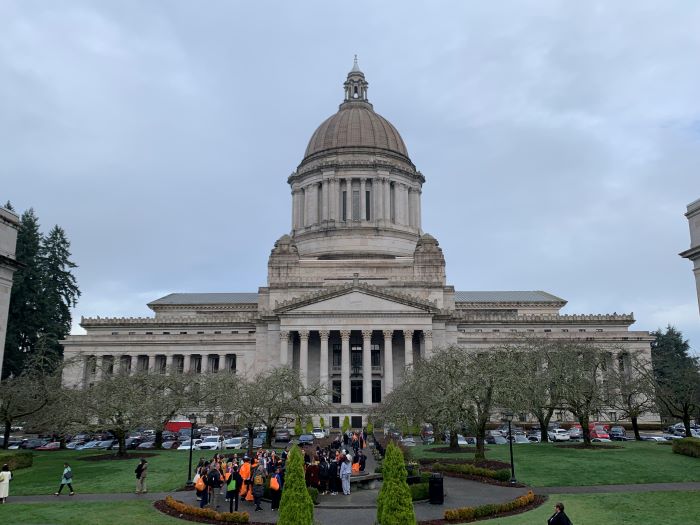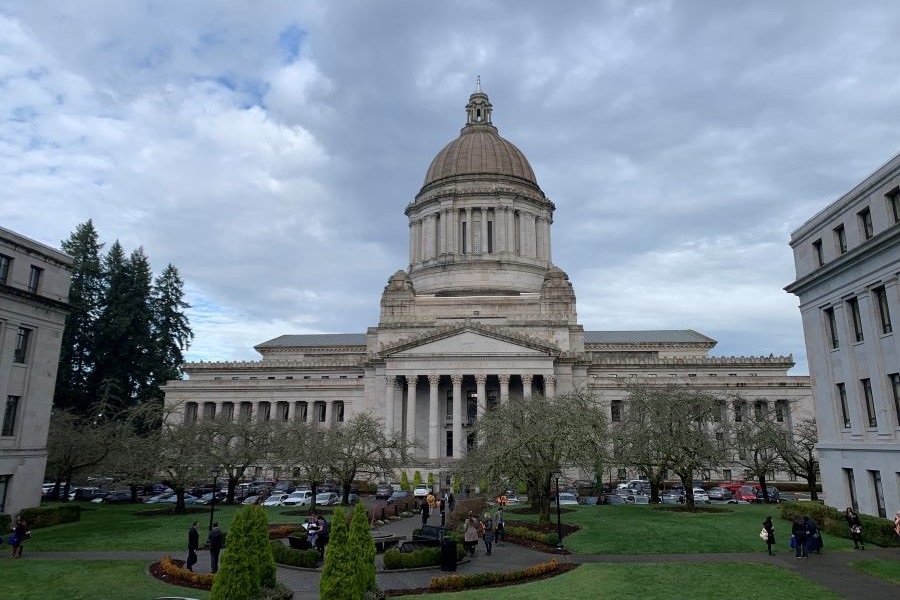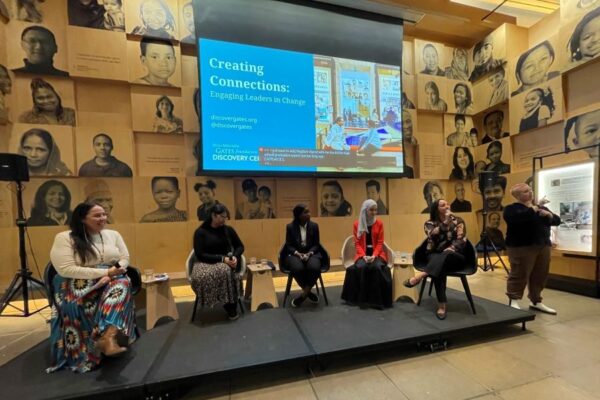The 2024 Legislative Session: Wow. Just Wow.
When it comes to how this year’s Washington state legislative session fared, there’s good news and there’s bad news.
First, the bad news: There wasn’t a whole lot of good news.
Or at least it wasn’t for those hoping lawmakers would craft mandates to keep schoolchildren safe and create more affordable housing options.
And it wasn’t as if our pols didn’t have a chance to do so during the two-month session. According to the Washington State Standard, lawmakers proposed nearly 1,200 bills this year, but about 800 died before reaching Governor Inslee’s desk to be signed into law. When it comes to dying bills, this year’s session had all the trappings of a Sopranos series marathon. In addition to education and housing, bills supporting health care, labor, and public safety bit the dust.
“We’re disappointed,” said Colleen Laing, United Way of King County of King County systems change and public policy director. “There was a lot of optimism going in. There were great proposals and good momentum, and it all crashed on the shore and died. All the energy got sucked out of it.”
United Way advocates for policies that address immediate and long-term concerns of our communities, particularly the systemic inequities affecting communities of color. We annually call on the state Legislature to craft legislation and provide adequate funding streams to proactively create equitable access to resources for people at the intersection of racism and poverty.
Hence our disappointment: Among the biggest losses this session was a bill to create a program to eliminate barriers in the state Open Doors youth reengagement system. The legislation would have ensured that those seeking alternatives to traditional schooling would have had fewer obstacles to persisting in their education.
“There was a lot of optimism going in. There were great proposals and good momentum, and it all crashed on the shore and died. All the energy got sucked out of it.”
Colleen Laing, United Way of King County of King County systems change and public policy director
Although the bill passed the Senate unanimously and got out of the House Education Committee, the clock ran out before the bill got a vote on the House floor, and funding was ultimately not included in the budget.
“The strong support for the bill has positioned us well for success next year, and we will continue to advocate for the program in the 2025 legislative session,” said Amanda Sandoval, United Way associate director of systems change & public policy.
The Legislature also failed to pass a bill that eliminated schools’ ability to use isolation and restraint as a disciplinary tactic.
“These traumatic practices are principally used on elementary students, students of color, and students with special needs,’” said Sandoval. “We will stay engaged on this important issue.”

And while many folks in our state continue to struggle with the high cost of rent (as evidenced by a United Way-run rental assistance waiting list of 11,000 people that grows by as many as 1,600 each month), a bill failed that would have required a six-month notice for rent increases and cap rent increases at 7% per year.
Another bill failed that would have required public benefits for renters in return for residential and commercial development near public transit to make housing more affordable and ease transportation burdens.
But it wasn’t all bad. The good news was that lawmakers allocated some funding to address concerns they could not resolve via policy.
For example, a measure that would have mandated all school children to eat free failed, but this year’s budget includes an additional $45 million for free school meals to fully fund last year’s expansion costs.
Though the affordable housing and residential development near transportation measures failed, lawmakers allocated $2 million to expand a homeownership program to make homeownership more accessible for those affected by government-supported discriminatory housing policies.
[During] an election year, legislators tend to avoid new taxes, controversial votes, and votes against powerful special interests, such as landlords and realtors.
Amanda Sandoval, United Way associate director of systems change & public policy
The final budget supported child care and other early learning programs with an additional $115 million to increase provider rates and reimbursements. The final budget also included funding for a United Way priority: $1.8 million for post-secondary basic needs, with $767,000 to fund at least one .75 full-time equivalent position for a Benefits Navigator at every public college. Benefits Navigators connect students to the on-campus resources they need to stay in school.
“The final supplemental budgets showed legislators’ caution in policy and budget,” Sandoval said. “This is primarily due to two factors. The first is 2024, an election year, when legislators tend to avoid new taxes, controversial votes, and votes against powerful special interests, such as landlords and realtors.
“The second reason is that there are several initiatives on the November ballot, including two proposing to repeal significant sources of state revenue,” Sandoval added. “If passed, which appears likely, they will force significant cuts in 2025. Legislators were understandably hesitant to create new programs that would have to be repealed shortly after implementation.”
Still, United Way will continue to push for legislation that improves the quality of life for all King County residents. To learn more about our advocacy efforts, click here.





Comments